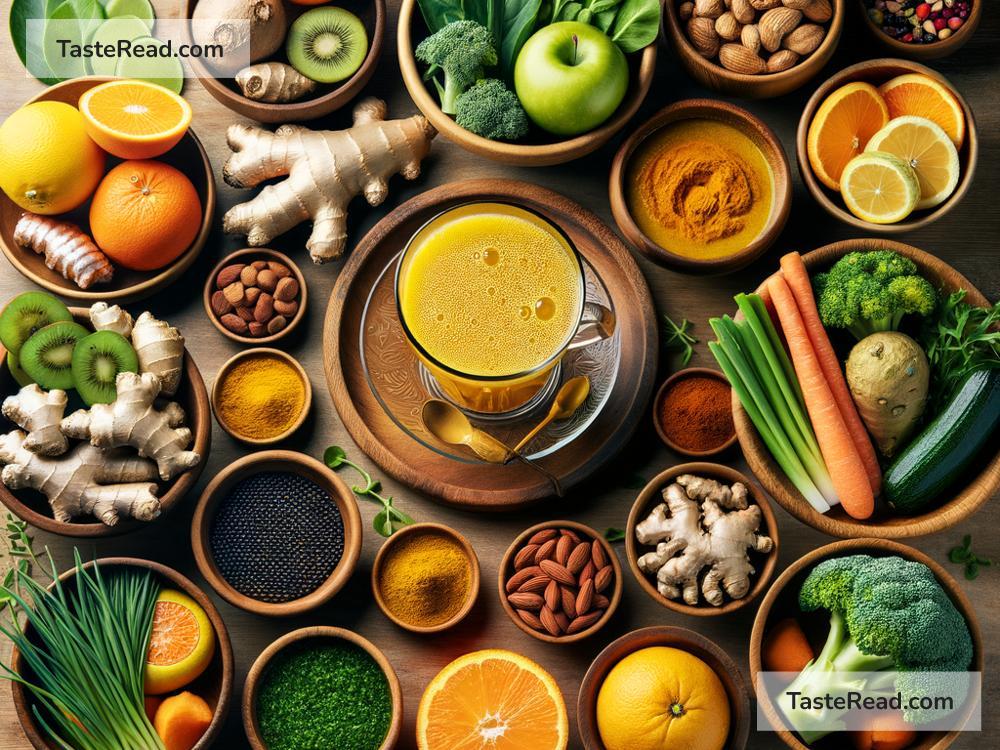Foods That Help Reduce Allergy Symptoms
Do you suffer from sneezing, itchy eyes, or a stuffy nose every allergy season? You’re not alone. Allergies can make life uncomfortable, but did you know what you eat can play a role in helping your body fight allergy symptoms? Certain foods have nutrients that can calm inflammation and strengthen your immune system, helping you handle allergens better. In this article, we’ll explore some of the best foods you can add to your diet to ease allergy symptoms.
What Are Allergies?
Allergies happen when your immune system reacts to a harmless substance, like pollen, pet dander, or dust, as though it’s dangerous. During this reaction, your body releases a chemical called histamine, which causes symptoms like sneezing, itching, and congestion. While medications can help manage allergies, diet can also play a role in reducing inflammation and improving your ability to deal with allergens.
Best Foods for Fighting Allergies
Here are some foods that may help alleviate allergy symptoms and keep your immune system balanced:
1. Citrus Fruits
Oranges, lemons, grapefruits, and other citrus fruits are packed with vitamin C. Vitamin C is known for its ability to strengthen the immune system and reduce histamine levels in the body. Histamine is the chemical responsible for most allergy symptoms, so lowering it can make you feel better. Plus, eating citrus fruits can keep your airways clear by reducing inflammation.
How to Enjoy:
Add slices of fruit to your water, blend them into smoothies, or simply snack on them.
2. Green Leafy Vegetables
Vegetables like spinach, kale, and broccoli are rich in antioxidants and nutrients that can reduce inflammation. Broccoli, in particular, contains quercetin, an antioxidant that can help decrease histamine production. It also includes vitamin C, doubling the benefits for allergy relief.
How to Enjoy:
Sauté leafy greens with garlic for a quick side dish, add them to soups, or toss them into your favorite salad.
3. Ginger
Ginger has been used for centuries as a natural remedy for many ailments. It has powerful anti-inflammatory properties that can help reduce swelling and irritation in your nasal passages. Drinking ginger tea can provide comfort and soothe allergies.
How to Enjoy:
Grate fresh ginger into hot water for tea, use it in stir-fries, or add a pinch of ground ginger to soups and baked goods.
4. Omega-3 Fatty Acids
Foods rich in omega-3 fatty acids, such as salmon, mackerel, walnuts, and flaxseeds, can reduce inflammation in the body. This is important because allergies cause your immune system to overreact and produce too much inflammation. Regularly consuming omega-3s may help your allergies feel less severe over time.
How to Enjoy:
Bake salmon with herbs, sprinkle walnuts on oatmeal, add flaxseed to your smoothie, or try a handful of nuts as a snack.
5. Local Honey
This is a popular remedy for seasonal allergies. The idea is that consuming small amounts of local honey exposes your body to trace amounts of the pollen in your area. Over time, this can make your body less sensitive to it, reducing allergy symptoms. While science hasn’t fully confirmed this, many people swear by it for alleviating symptoms.
How to Enjoy:
Drizzle honey on yogurt, toast, or oatmeal. You can also mix it into tea or warm water with lemon.
6. Garlic
Garlic contains a compound called allicin, which has anti-inflammatory and immune-boosting properties. It can strengthen your immune system and help your body respond better to allergens. Garlic is also believed to help clear up congestion during allergy seasons.
How to Enjoy:
Add minced garlic to soups, stir-fries, or pasta dishes. Roasted garlic makes a tasty spread for bread or crackers.
7. Turmeric
Turmeric is a bright yellow spice often used in Indian cooking. It contains curcumin, a compound with strong anti-inflammatory and antioxidant properties. Turmeric may help reduce allergy symptoms by calming your immune system’s response.
How to Enjoy:
Sprinkle turmeric on roasted vegetables, mix it into soups, or make a warm turmeric tea with honey and lemon.
8. Probiotic-Rich Foods
Probiotics, which are found in foods like yogurt, kefir, and fermented vegetables (e.g., kimchi and sauerkraut), support gut health. A healthy gut can regulate your immune system and reduce allergic reactions. By improving the balance of good bacteria in your digestive system, probiotics may help you cope better with allergies.
How to Enjoy:
Add yogurt to your breakfast routine, enjoy kimchi as a side dish, or sip on a kefir smoothie.
9. Apples
Apples contain quercetin, the same compound found in broccoli. Quercetin acts as a natural antihistamine, which can calm allergy symptoms like sneezing and itchy eyes. Plus, apples are easy to include in your diet.
How to Enjoy:
Slice apples for a snack, mix them into salads, or bake them with cinnamon for a treat.
Other Tips for Managing Allergies with Food
- Stay Hydrated: Drink plenty of water to keep your sinuses moist and reduce congestion.
- Limit Dairy: For some people, dairy can thicken mucus and make symptoms worse.
- Avoid Processed Foods: Junk food and sugary drinks can worsen inflammation, making allergy symptoms worse.
Final Thoughts
Although allergies can be frustrating, simple changes in your diet may help reduce symptoms naturally. From vitamin C-packed citrus fruits to anti-inflammatory turmeric and gut-friendly probiotics, including these foods in your meals can support your body during allergy season. Eating a balanced diet and staying hydrated can also make a big difference.
Everyone’s body is different, so it’s always a good idea to speak with your doctor or allergist before making major changes to your diet. By combining healthy eating habits with other allergy treatments, you may find yourself feeling better and more prepared to enjoy the seasons ahead.


